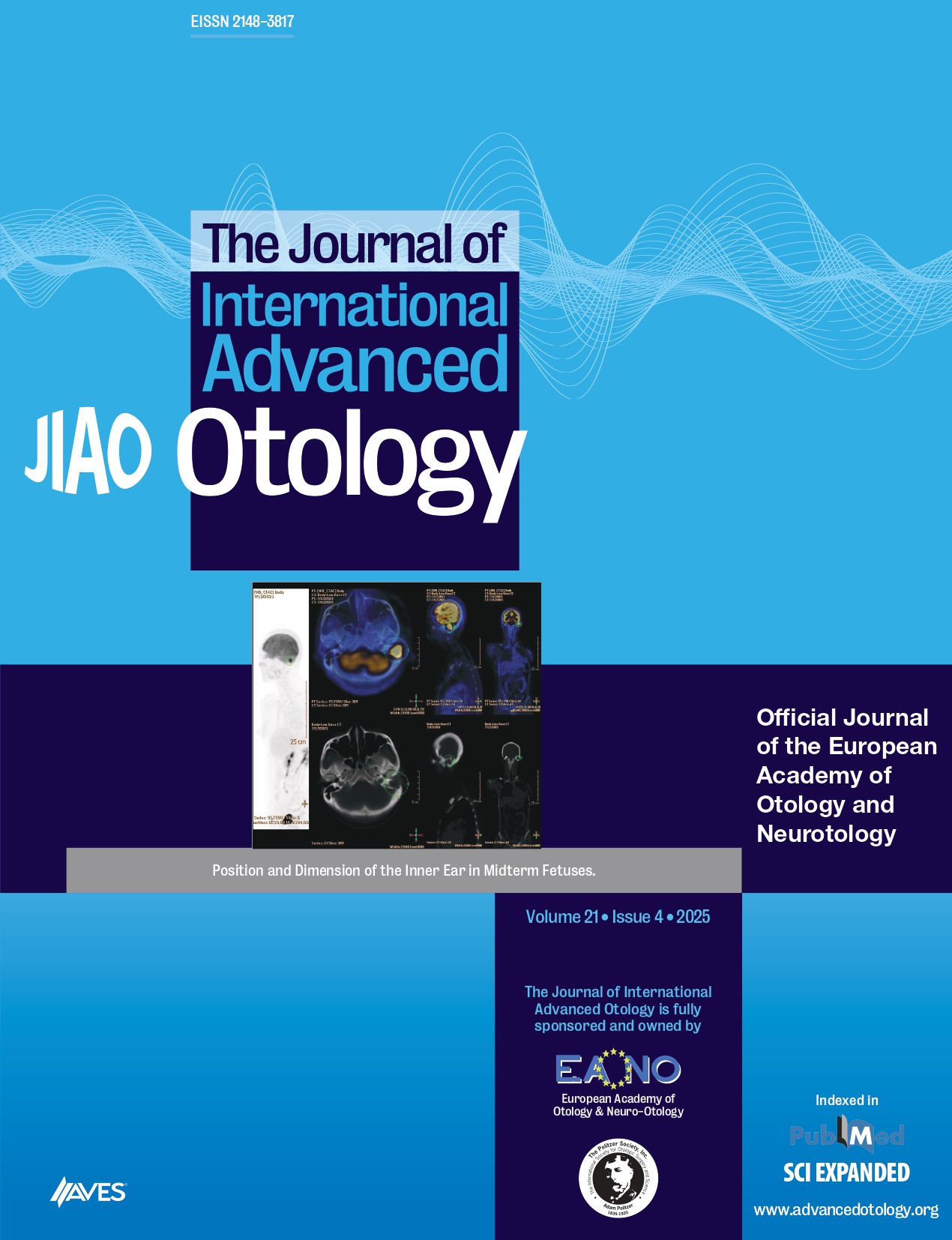Abstract
OBJECTIVE: The aim of our study was to investigate the effects Korean Red Ginseng (KRG) on cisplatin (CDDP) ototoxicity in vivo and in vitro.
MATERIALS and METHODS: The first part of the study was conducted on the House Ear Institute-Organ of Corti 1 (HEI-OC1) cell line. Cells were treated with CDDP, KRG, and their combination for 24 h. Cell viability, apoptosis, and the expression of 84 apoptosis-related genes were analyzed. In the second part of the study, 30 Wistar albino rats were divided into five groups. Baseline distortion product otoacoustic emissions (DPOAEs) and auditory brainstem response (ABR) measurements were obtained. In groups I, II, and III, only saline, KRG, and CDDP, respectively, were given. In group IV, 500 mg/kg KRG and in group V, 150 mg/kg of KRG were administered for 10 days. In groups III, IV, and V, 16 mg/kg CDDP injections were administered on day 11. On day 14, final DPOAEs and ABR measurements were completed. The rats were then sacrificed, and their inner ear structures were evaluated by transmission electron microscopy.
RESULTS: In the first part of the study, pretreatment with 1 mg/mL KRG protected cells from CDDP ototoxicity. This protection was mainly due to a decline in apoptotic gene expression and an increase in antiapoptotic gene expression. In the in vivo part of the study, we found that both KRG doses had otoprotective effects. This protection was more prominent at the lower dose, especially on the spiral ganglion and the brainstem.
CONCLUSION: KRG was shown to be an otoprotective agent against CDDP-induced ototoxicity both in vivo and in vitro.



.png)
.png)